September 2014
A Note from the Director, Dr. John Waller
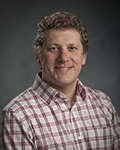
It's a bit of a cliché to start by saying that we're excited at the launch of a new program. But we are and we have very good reason to be. Here are some reasons why: our first cohort is brimming with intelligence and enthusiasm; we have lined up for the Social Science Scholars 15 weeks of seminars with MSU faculty, alumni, even a movie director and a South African High Court judge; we have had the license to design an education in accordance with what is known to work rather than merely what has always been done; and we have forged partnerships among alumni, community members, college staff, faculty, and students. The last of these is especially important. The greatest pleasure over the last several months has been meeting with people outside of MSU, telling them about the program, and receiving their enthusiastic support. Through their generosity, every incoming Social Science Scholar has a community mentor who can teach things that universities alone cannot impart, we have funds so that highly able students from economically deprived backgrounds can become Social Science Scholars, and we are in a position to receive expert input on how to make this program as useful as possible to our students. I have long been sensitive to concerns about universities not providing students with the right training for the workplace. Our goal is that the Social Science Scholars Program will serve as a model for how universities can work with communities in such a way that students acquire both useful knowledge and professional skills.
These Social Science Scholars Program newsletters are designed to keep you abreast of how the program is developing and what our students are doing. In each issue we will highlight individual mentors, students, and contributing faculty. We will also encourage Social Science Scholars to write either personal reflections or short opinion pieces on important social science topics. In addition, we will highlight ways in which you can get more involved if you wish to do so; for instance, by coming along to - or even hosting - one of the movie or book discussion evenings which we have organized for Social Science Scholars who are interested in more cerebral extracurricular activities.
Thank you so much for your support of this genuinely exciting initiative.
Remembering Our Similarities as Opposed to Our Differences
by Madge MacLean
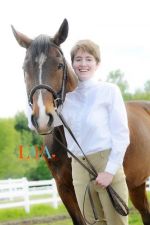
"This is your new home. This is where you need to find your MSU family." This is not exactly what you want to hear on your first day at college at 10 AM-especially when you've already been up for five hours. As the professor continued to speak, mostly about the importance of a support group throughout your time at college, I leaned forward and looked to my left, down the row of my fellow MSU freshmen. I was met with about eleven pairs of eyes exchanging glances. Next to me, someone said, "I think we already know who our 'family' is going to be." I smiled and sat back, but my heart was fluttering with anxiety. That day, at the Academic Orientation Program, I was meeting my fellow Social Science Scholars for the first time. We had previously chatted through FaceBook and I had met one or two in person, but mostly I had little to go off when it came to what kind of people they were. Spending the next four years with the same 20 people can be slightly daunting when you've never met these 20 people before, and have a very limited idea of exactly how well you're all going to get along. The SSS had been a dream come true for me since I had first heard about it and listened to Dr. Waller speak not only at the Alumni Distinguished Scholarship competition in February, but also at my Youth in Government conference later in the year. Social science had always been a passion of mine, but not as much as social justice and making changes in the world that not only should, but demand to be made. Traveling abroad, talking about critical problems and social inequalities, and generally trying to better the world sounded like a pretty good use of time to me. I was thrilled when I was welcomed into the program and immediately accepted my admission. Then I began to realize whom I was in with. True, the program has a diverse range of students background- and location-wise, but the one constant is that everyone is highly intelligent, motivated, and usually at the top of their high school class. For every one of my proudest accomplishments, there was someone in the group who had matched or far exceeded it. This only added to my anxiety as AOP drew closer, and the morning of our first face-to-face meeting, I was positively jittery. As the day wore on, however, I came to understand something. National Merit Scholarship finalists, Quiz Bowl champions, Lieutenant Governors in youth government, published authors, theater leads... although all the scholars have unique skills and talents, many that seem incredibly impressive to the rest of us, there is one more constant that I originally failed to recognize. All of us are in the same boat; all of us are starting at a new school in unfamiliar territory. All of us are trying our hardest to put our best foot forward and stay organized but floundering a little at the same time. And above all else, all of us are teenagers-young, excited, driven, sometimes more than a little crazy. We cheered on the US soccer team as we signed up for classes. We groaned as we took the mandatory survey at the end of the day. We laughed as we walked to and from lunch and sent each other pictures while we weren't together. At the end of the day, I went to bed with aching cheeks from laughing and smiling so much. An even better realization hit me as I understood that this would be the way it was for the next four years. Until recently, sharing my life for almost half a decade with 20 other strangers scared me. Now that they're no longer strangers, and friendships are well on their way to forming, I can honestly say that I'm looking forward to it.
Books and Movies
We'd like to offer the Social Science Scholars a few cerebral and non-mandatory extra-curricular activities that will also help to prepare them for highly competitive competitions for scholarships like the Truman, Marshall and Rhodes. Each month we'll have one evening devoted to discussing a work of fiction and another to watching a significant movie. This is also an excellent opportunity for mentors and alumni supporters of the Social Science Scholars Program to get involved. If you'd like to participate in these events please feel free to do so. We'll be holding the discussions and viewings in the program offices - 307 Berkey - but we're hoping that alumni will sometimes be able to serve as hosts: please let us know if this sounds appealing. Below is a list of the itinerary for the selected books and movies:
- September 23 (6:30-8:30pm): Discussion of, All Quiet on the Western Front by Erich Mari Remarque
- September 29 (6:30-8:30pm): Movie night - All Quiet on the Western Front
- October 21 (6:30-8:00pm): Discussion of, 1984 by George Orwell
- October 30 (6:30-8:30pm): Movie night - Doctor Zhivago
- November 13: (6:30-8:00pm): Discussion of, Black No More by George S. Schuyler
- November 25 (4:00-6:00pm): Movie night - In the Heat of the Night
College Retention
by Erik Rose
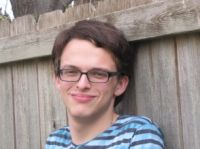
High dropout rates among students are a paramount issue facing colleges in the U.S. today. According to the Department of Education, the average graduation rate for all 4-year accredited colleges is only around 59%. This statistic includes those who took up to 6 years to complete their Bachelor's degree. Considering the cost and importance of secondary education in modern America, why do such a large number of students fail to complete their degrees? And more importantly, what can colleges and communities do about it? One solution may lie in small groups of social and educational interaction such as the Social Science Scholars program at Michigan State University.
Concerning why students choose to dropout, there are many influential factors that can cause students to not complete their degree. A study conducted by MSU assistant psychology professor Tim Pleskac identified depression, inability to afford costs, and poor grades as some of the top reasons students choose to drop out. The study shows that typically, students face more than one of these factors. Eventually, students reach a breaking point where they feel they cannot complete their degree or that completing their degree would not be worth the cost.
Fortunately, getting rid of any one of these sources of stress could be the difference between getting a degree and dropping out. Any attempt to reduce dropout rates has to find ways to combat the influential factors identified in the MSU study. Programs like our own Social Science Scholars program have the ability to do just that. Scholars programs bring a small group of excellent students together to give them close interaction with professors and each other in order to improve the students' education and college experience. A University of Chicago study found that feelings of loneliness increase the likelihood for an individual to show depressive symptoms.
Scholars programs provide students with a small group of peers who come together many times throughout the year because of a shared common interest in a field of study. Having a group of like-minded peers can help students get out of those feelings of loneliness that often come along with leaving home and in turn, reduce the likelihood of depression among the students involved in the program. The Social Science Scholars program also helps students afford the financial cost of college. Thanks to the generous Alumni of the College of Social Science, all students were offered financial aid in the form of scholarships. Any amount of aid can reduce the stress that comes along with the high cost of college today. Providing students with more financial stability allows them to see that finishing their degree is worth the cost and effort. Finally, scholars programs like the Social Science Scholars program can go a long way in preventing students from getting unexpected bad grades in their classes. Knowing an intelligent group of students who have similar academic interests on a personal level and having frequent interaction with professors gives students in the Social Science Scholars programs numerous ways to receive help in classes that they are struggling with. Getting help with classes students are having trouble with is the first step in performing well academically and is a step students often fail to take. Scholars programs give students an easy way to succeed in all classes.
All in all, high dropout rates for undergraduates are a problem that not only hurts individual students, but also hurts communities and the nation as a whole. By giving students financial aid, providing them with a close social group of like-minded peers, and offering a tremendous amount of help academically, scholars groups like the Social Science Scholars program at MSU can prevent some of the best students from leaving college before completing their degree.
Connections
by Manny Alalouf

For most of my life, I’ve been motivated by the idea of success. Most of the adults that have ever given me advice on how to be successful have thrown out the line, “It’s not what you know, it’s who you know.” This somewhat clichéd quote is one of the main reasons that I’m excited to attend Michigan State in the fall. I don’t want to meet people just to become more successful in my financial future, I know that the connections that I create during my college years will expand my mind in terms of intelligence, open-mindedness, musicality, as well as creativity, and I could not be more enthused about the caliber of people that will surround me during my next 4 years. In deciding where I wanted to go to college I thought about where I would be most successful and where I would find the peers that could both challenge me academically, but still be creative enough to open my mind to new things. Honing ones intelligence is only the first step to truly being successful. In the future I want to break through concepts that we think of today as unbreakable. I want to change the world. Whether I change it by inventing a small new product or by changing political philosophy makes no difference to me as long as I make my lasting imprint on the world. That is why what I am most excited about for Michigan State is meeting new people that can help me to make this imprint on the world. I’ve already begun developing new ideas, such as the bill I wrote to change the electoral process in presidential elections for Michigan, to give the state a hybrid election process that mixes together the benefits of both the winner-take-all process and the proportional representation process. I know that my skill-set is one that is comprised mostly of political and financial knowledge, and I know that I will come across people with a completely different knowledge base, and that I will grow much more as a person by working and studying alongside them. There is no better example of a highly excited incoming freshman at MSU, and I could not be any more thrilled about the people with whom I will be studying next fall.
Civic Engagement – Helping, Bonding, Learning
by Tristyn Walton

As a young girl my parents instilled in me this scripture: “to whom much is given, much is required."
Luckily, I was given another opportunity to live out these words and participate in a service-learning/civic engagement project at Edgewood Village.
Edgewood Village is a subsidized multi-family rental property located right here in East Lansing. When I first learned what was planned for the Social Science Scholars, I must say, I was a bit anxious and worried about what was to come. I mean come on, all I could think about was the time frame of eight (8) long consecutive hours after a very long “dorm move-in day” the previous night. However once I better understood where we were going and who we were helping, my trepidation turned to real excitement. I was really excited to get out in the garden and lend my hand to give back to support a worthy initiative.
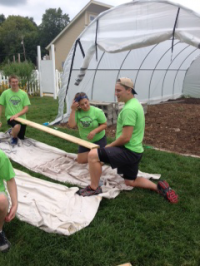
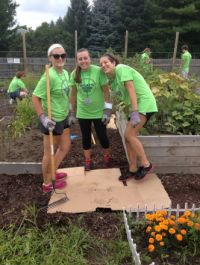
As a group we de-weeded, mulched, and cleaned the beautiful garden at Edgewood. Sure we all got a little dirty, or a lot dirty; but, it was well worth it because it was more than riveting for me to have the opportunity to get to know some of my fellow scholars on a more personal level while assisting such a lovely community.
As I mentioned above, I felt lucky to be given the chance to volunteer and do some service learning work and I mean exactly that. In fact, I feel just as fortunate to be in a position to give help as the individuals who are receiving it feel. My mom builds affordable housing communities just like this one all around the country and I’ve been proud of her for doing good work. Now it is just so satisfying to know that I am making a difference in somebody’s world. No matter if it’s mulching a garden or building a hoop house, every act of kindness counts.
In closing, I absolutely enjoyed and appreciated the Social Science Scholar’s service learning project at Edgewood. I hope to return and volunteer more of my time to the community while I am here in East Lansing.

